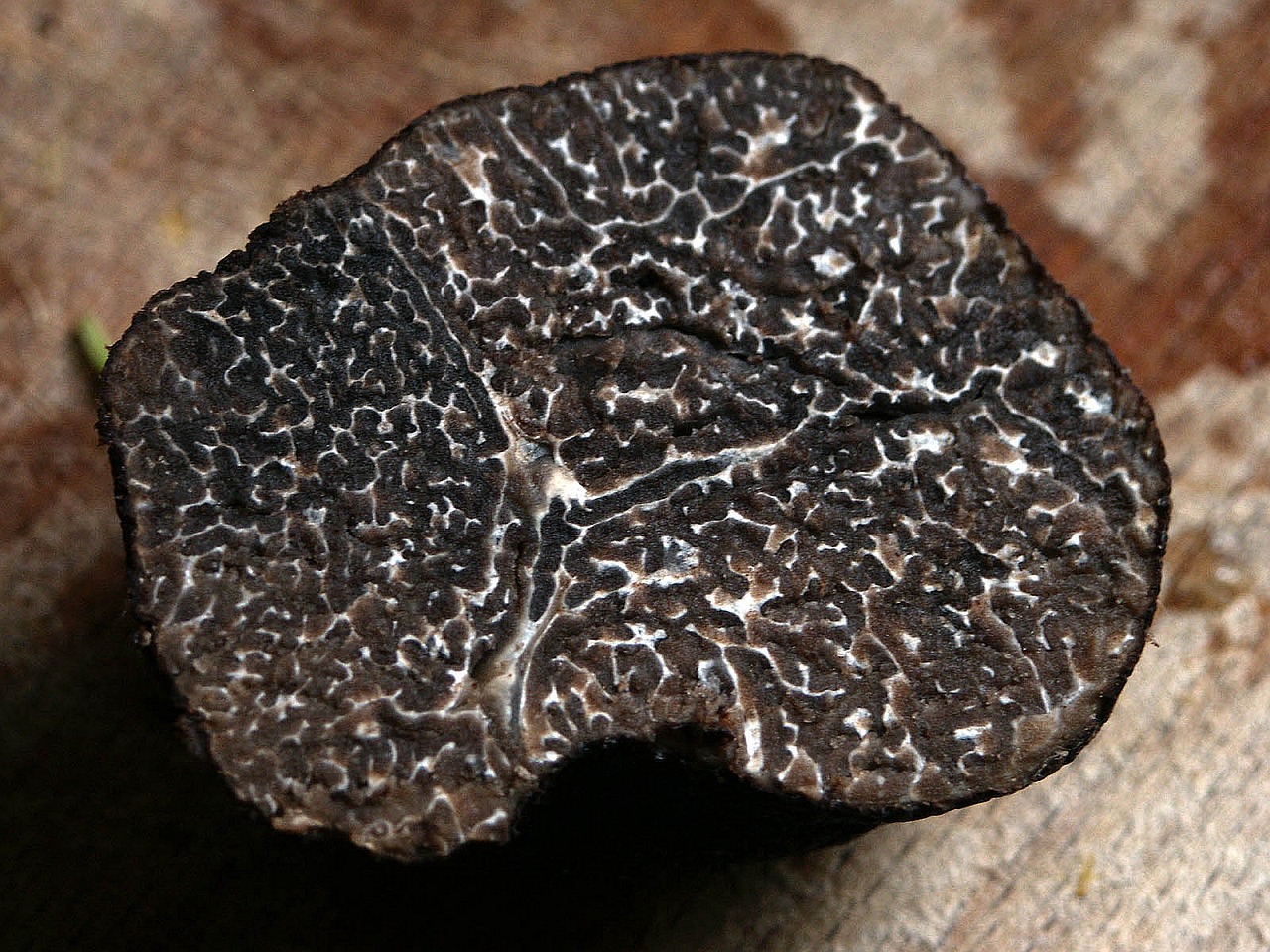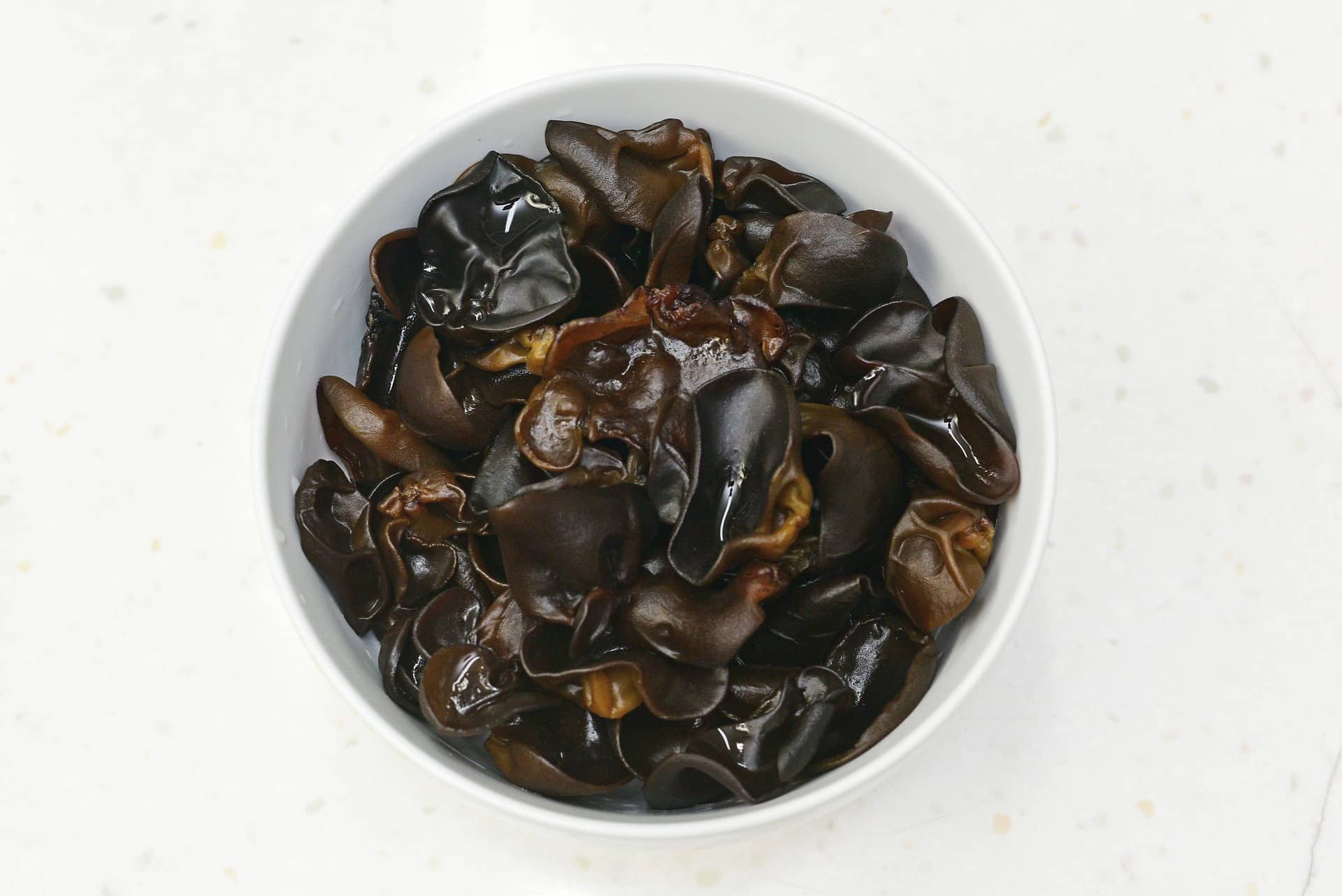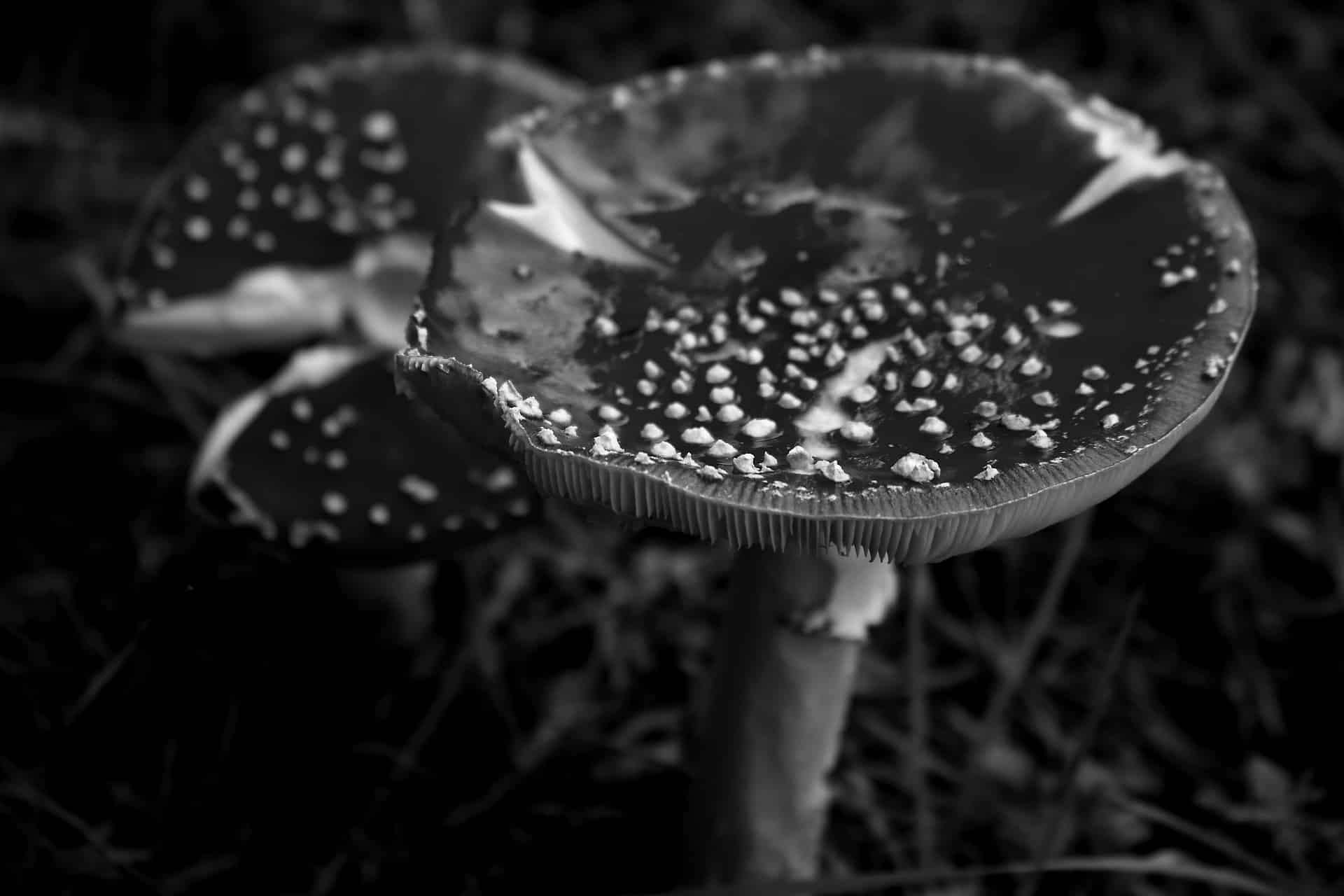Black fungus adds a unique texture and flavor to dishes and has impressive health benefits. Still there is a question can we eat black fungus everyday? Well, No! Despite all the health benefits, consume it in moderation. Excess use of black fungus everyday can cause potential health risks.
Once used in traditional Chinese medicine, black fungus is now making its way into Western cuisine. Black fungus, also known as wood ear mushroom or cloud ear fungus has been gaining popularity as a food in recent years. Let’s find out the nutritional value of black fungus and the role of black fungus in a balanced diet. Get ready to light on the wonders of this mysterious and intriguing superfood!
Nutritional Value of Black Fungus
Black fungus is a highly nutritious food with many health benefits. It do not only add a delicious earthy flavor and chewy texture to dishes but also provides nutritional value. Here are some of the key nutrients found in black fungus:
-
Macronutrients In Black Fungus
Black fungus is a low-calorie food and rich in dietary fiber. It has about 3 grams of fiber per 100 grams of dried fungus and also contains 7 grams proteins per 100 grams of dried fungus.
-
Micronutrients In Black Fungus
Wood ear mushrooms are a good source of iron which is essential for growth. It is also vital for maintaining healthy blood cells and preventing anemia. Black fungus also contains other minerals such as potassium, phosphorus, calcium, and magnesium. In addition, black fungus is rich with vitamins B1, B2, and D. These vitamins are important for maintaining glowing skin, eyes, and nervous system.
Health Benefits Of Black Fungus

This natural food can treat a variety of health conditions. Black fungus is best for People who are suffering with high blood pressure, high cholesterol, and inflammation . Some studies shows that black fungus have anti-tumor, anti-viral, and anti-inflammatory properties.
-
Immune-Boosting Properties Of Black Fungus
This natural food contains beta-glucans, which boosts the immune system by stimulating the production of white blood cells. White blood cells lowers the risk of viral infections and against the disease.
-
Eating Black Fungus For Digestive Health
Fiber in black fungus can promote healthy digestion. It prevents constipation, reduces inflammation in the digestive tract, and promotes the growth of beneficial gut bacteria.
-
Arterial Health
Black fungus contains compounds that lowers cholesterol levels and reduces the risk of heart disease. It also contains potassium, which regulates blood pressure and decreases the risk of stroke.
-
Black Fungus For Skin Health
Vitamin D is considered best for skin health. Black fungus is filled with Vitamin D and other healthy elements that promotes collagen production and reduces inflammation in skin. It also contains antioxidants that protects against free radicals, which can cause cellular damage and contribute to aging.
-
Eat Black Fungus For Weight Management
The fiber and protein in black fungus promotes feelings of fullness and reduce calorie intake which aids in weight management.
How To Eat Black Fungus?

Black fungus is a versatile ingredient and you can prepare it in various ways. Here are some popular methods for eating black fungus:
Soaking and Stir-frying
If you’re wondering how to prepare black fungus, Soaking and stir-frying is a popular way to use it. Before using black fungus in any recipe, soak it in water for 30 minutes to rehydrate it. Once it’s soft, stir-fry it with vegetables and meat to create a tasty and nutritious dish.
Eat Black Fungus In Soups
Black fungus is a popular digestible ingredient. Fungus are main ingredient in many Chinese soups such as hot and sour soup or chicken and black fungus soup. Use of black fungus in dishes is like icing on the cake.
Black Fungus In Salads
You can use Black fungus in salads, either raw or blanched, to add a unique texture and flavor. It pairs well with other crunchy vegetables and a tangy dressing.
Braised Dishes
If you are wondering how to cook dried black fungus? here is a simple technique. Slow-cook it in a braising liquid, such as soy sauce and sugar until it absorbs the flavors and becomes tender. This method of cooking makes it a great addition to meat or vegetarian dishes.
Eat Black Fungus As a snack
In China, black fungus is also served as healthy and flavorful snack. Marinate it in a spicy sauce and serve cold.
What Are The Side Effects of Eating Black Fungus?
- Many people are concerned that black fungus is poisonous to eat. This is true! There have been some reports of poisoning in certain species of black fungus, particularly in wild black fungus. These species may contain harmful toxins that can cause symptoms such as vomiting, diarrhea, abdominal pain, and even liver damage.
- One of the primary risks associated with eating black fungus is its high oxalate content. Oxalates are found in many plant-based foods and can cause kidney stones in some people. Consuming too much black fungus every day may increase your risk of developing kidney stones, especially if you are prone to them.
- Another potential risk of eating black fungus every day is its ability to interfere with blood clotting. Black fungus contains a natural blood-thinning agent, which can help reduce the risk of blood clots in some people.
- Additionally, some people may be allergic to black fungus or develop an allergic reaction after eating it. Symptoms of an allergic reaction may include skin rashes, hives, itching, and difficulty breathing.
FAQs Related To Black Fungus

Is Black Fungus Good For Weight Loss?
Black Fungus is a low-calorie food that can be a good addition to a weight loss diet. It is also high in dietary fiber, which can help you feel full and reduce your overall calorie intake.
How Much Black Fungus Can We Eat Everyday?
There is no one-size-fits-all answer to this question. The amount of black fungus you should consume per day depends on various factors such as your age, gender, and overall health. As a general rule, don’t eat black fungus everyday. Consume black fungus in moderation.
Can You Eat Black Fungus Raw?
Black fungus is typically sold in dried form and needs to be soaked in water before it is used. While it is possible to eat black fungus raw, it is not recommended. It may be difficult to digest and could potentially contain harmful bacteria or toxins.
In conclusion, black fungus is a nutritious ingredient that has been used for centuries in traditional Chinese and Japanese medicine and cuisine. While black fungus is generally safe to eat, it may pose some risks. Overall, black fungus can be a great addition to a healthy diet. But it is important to be mindful of the potential risks involved.



